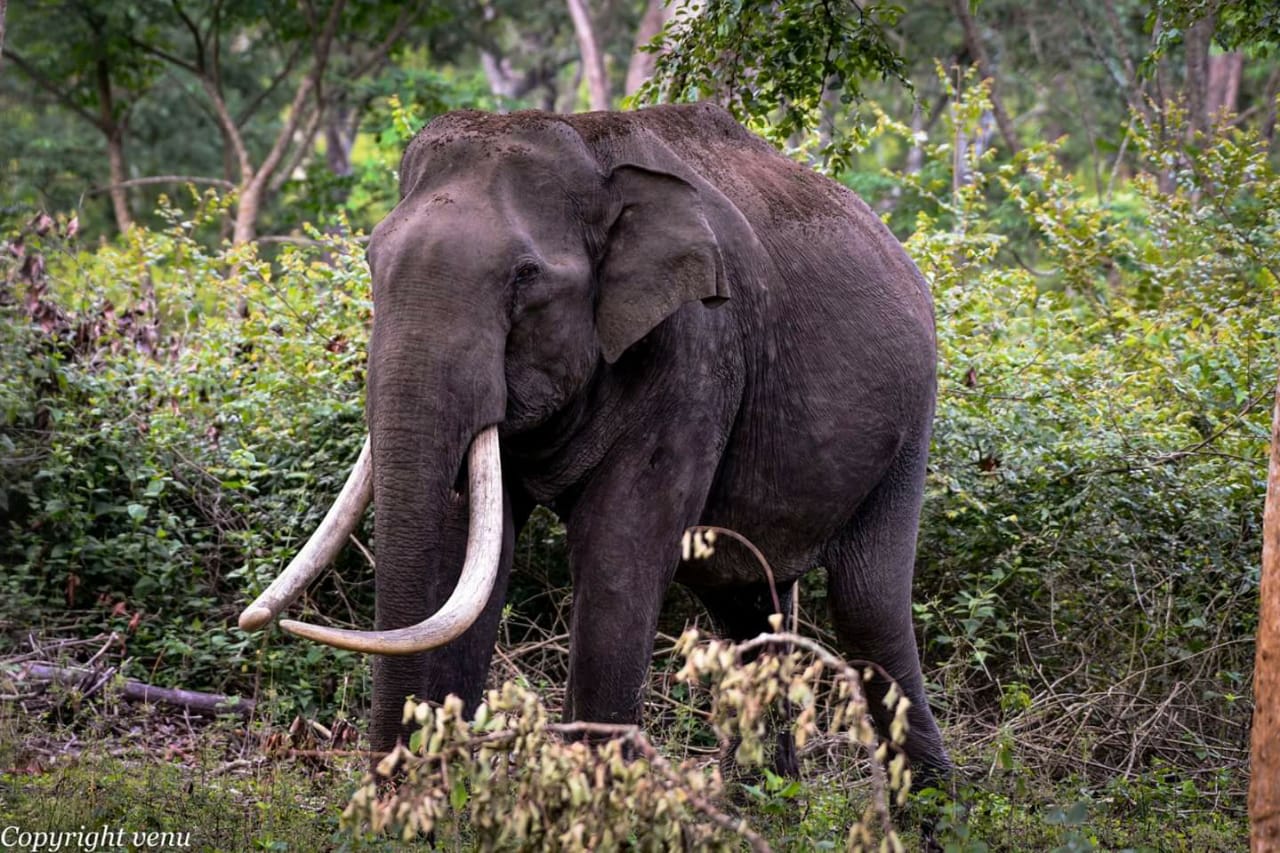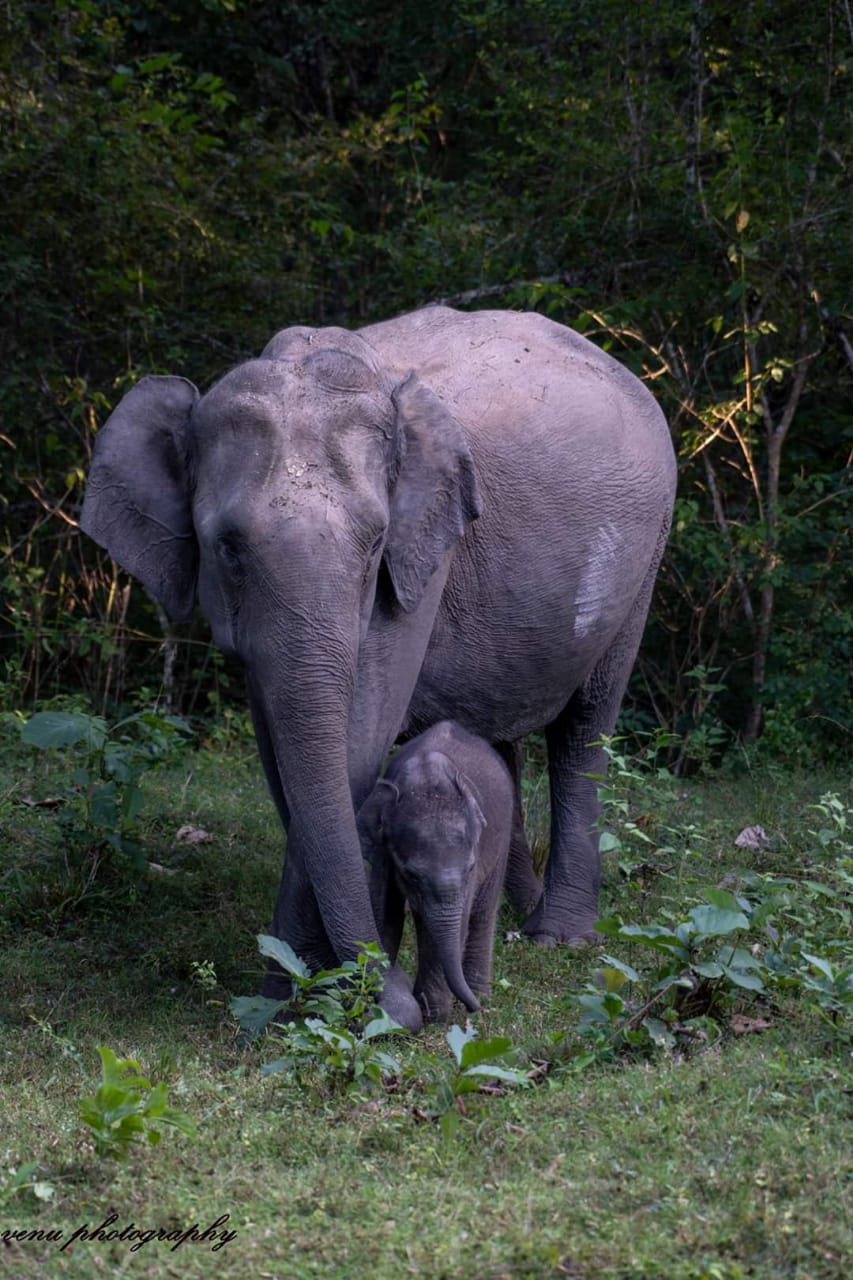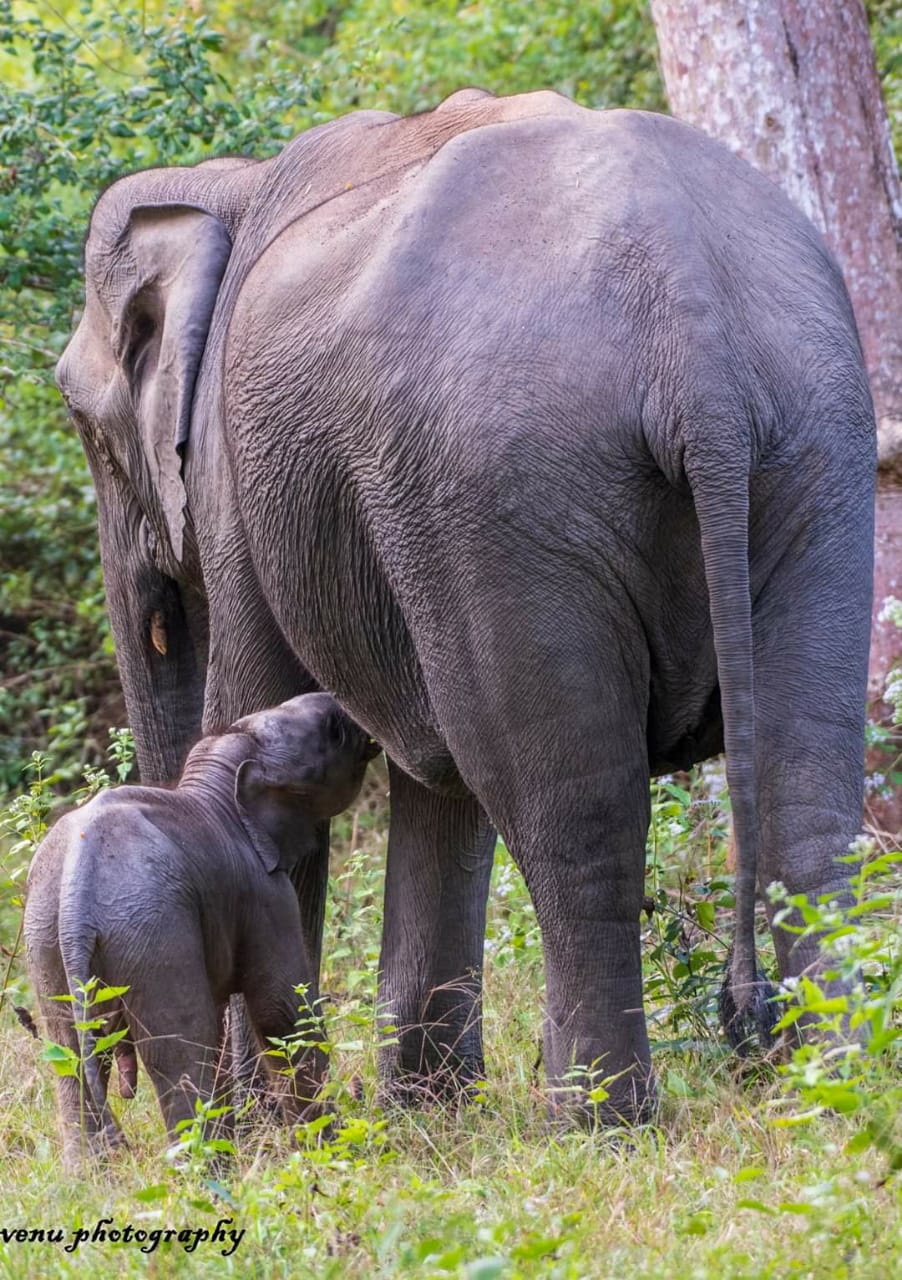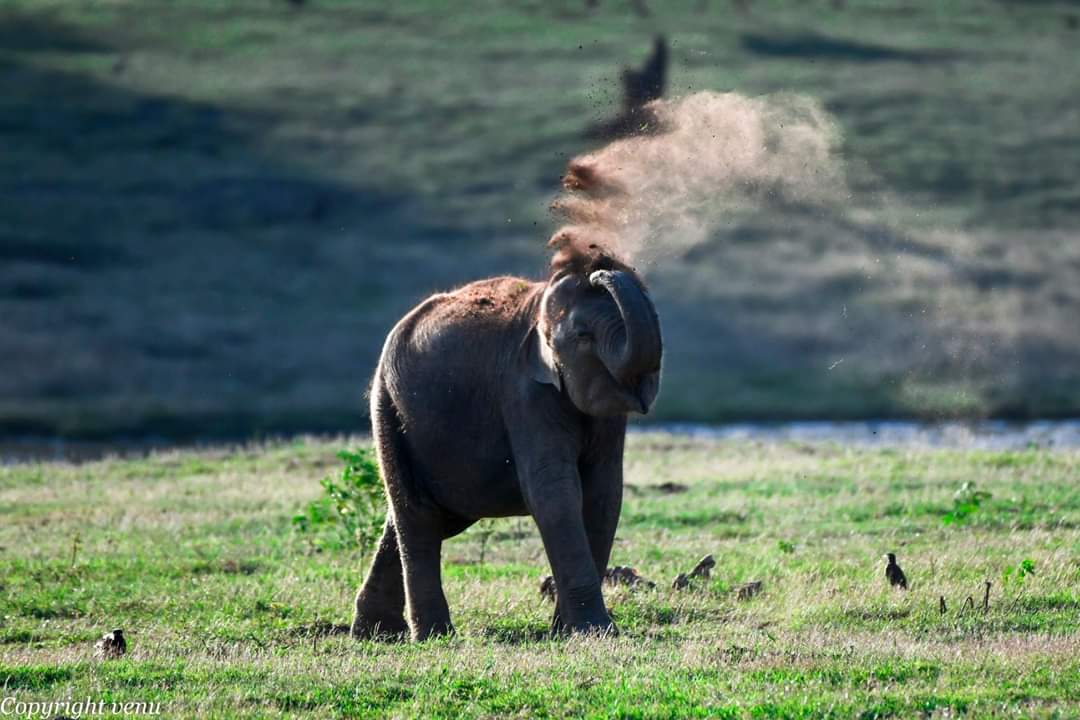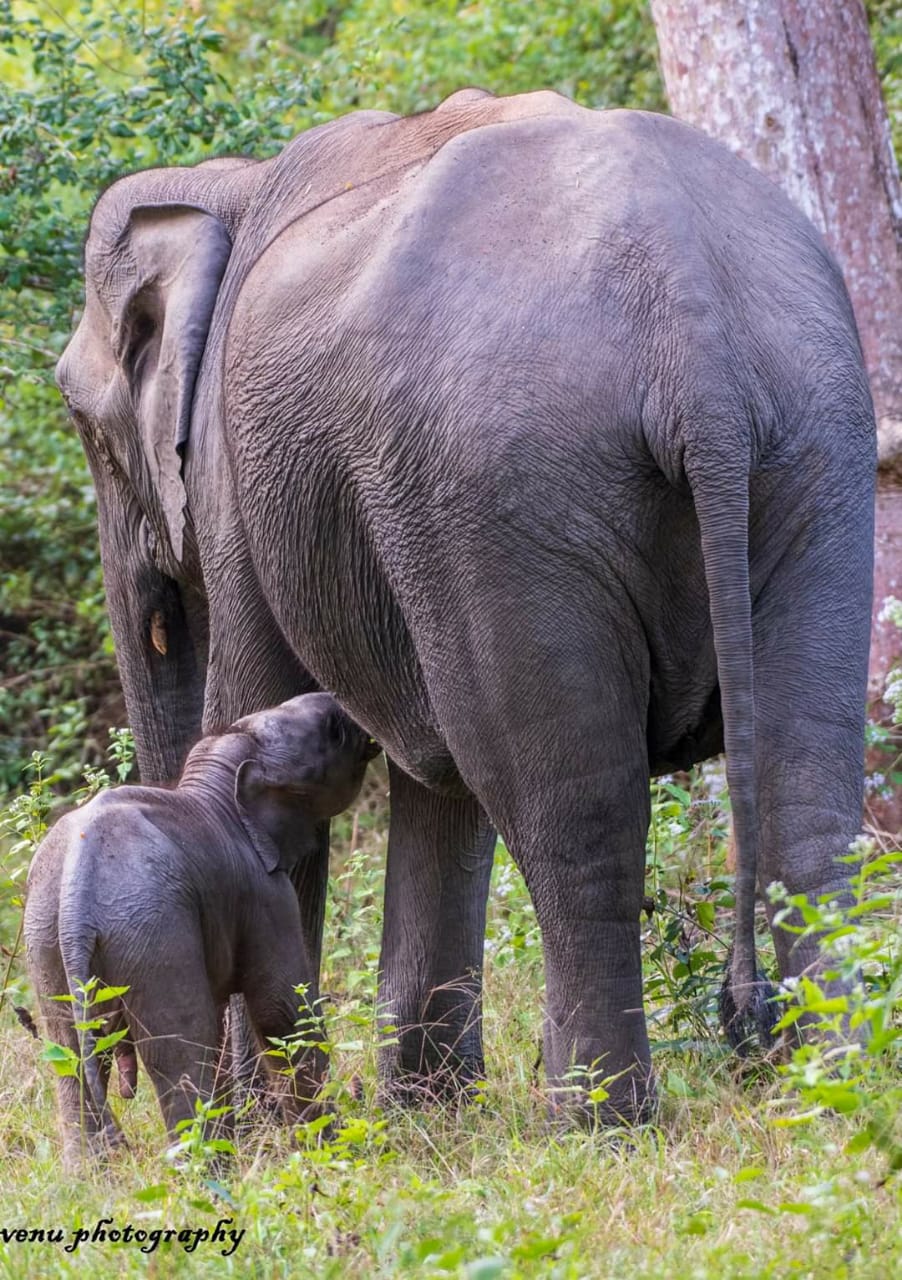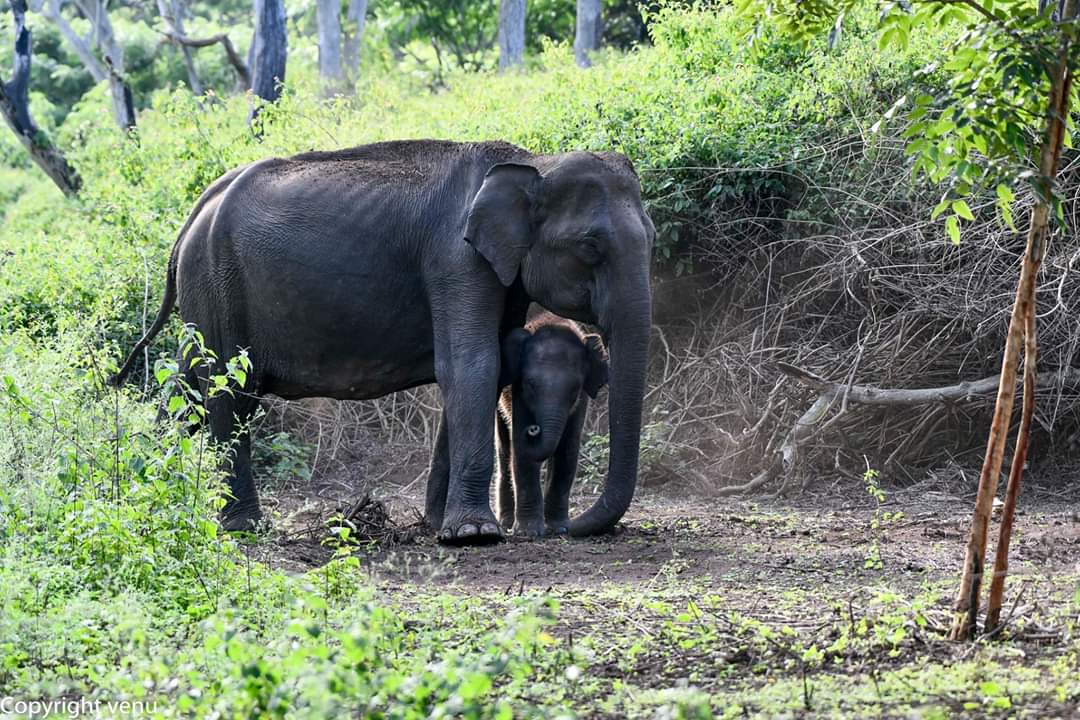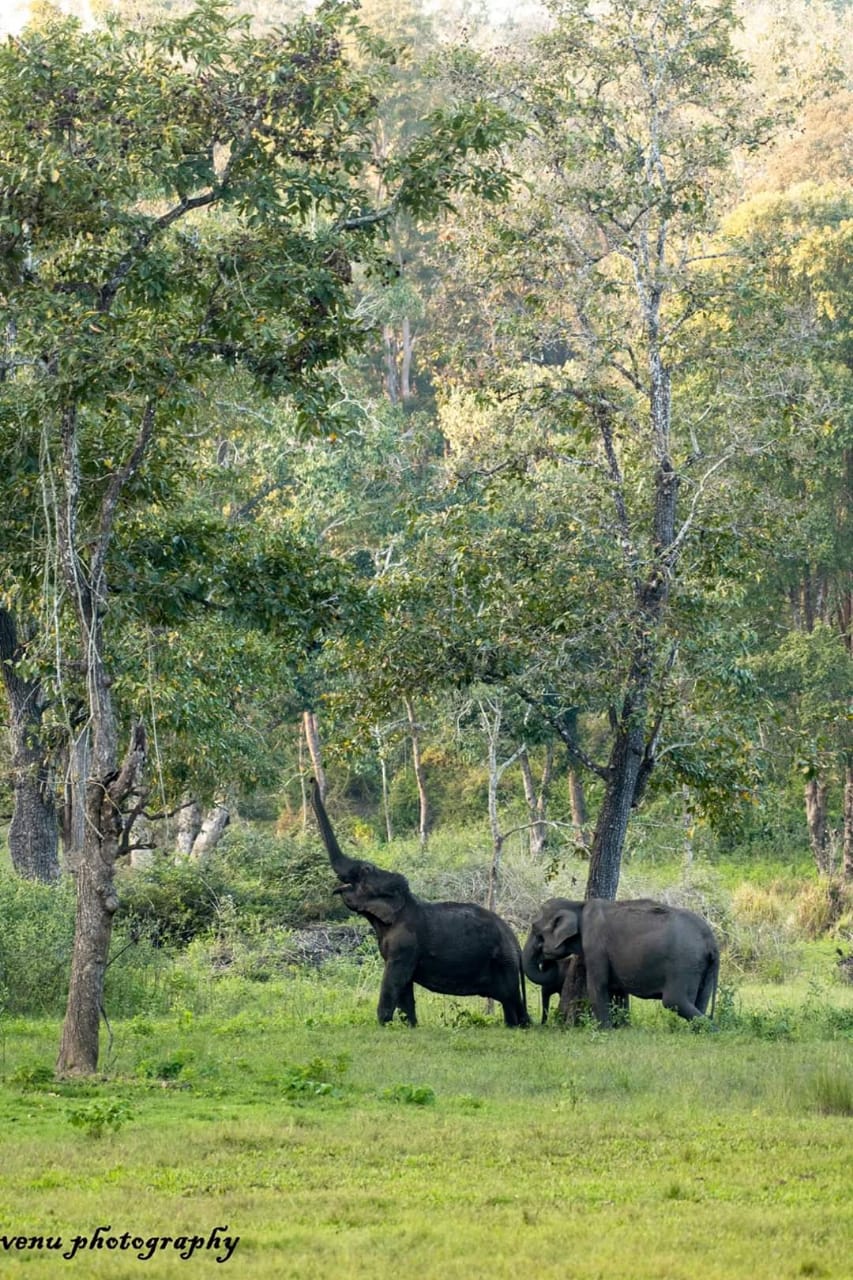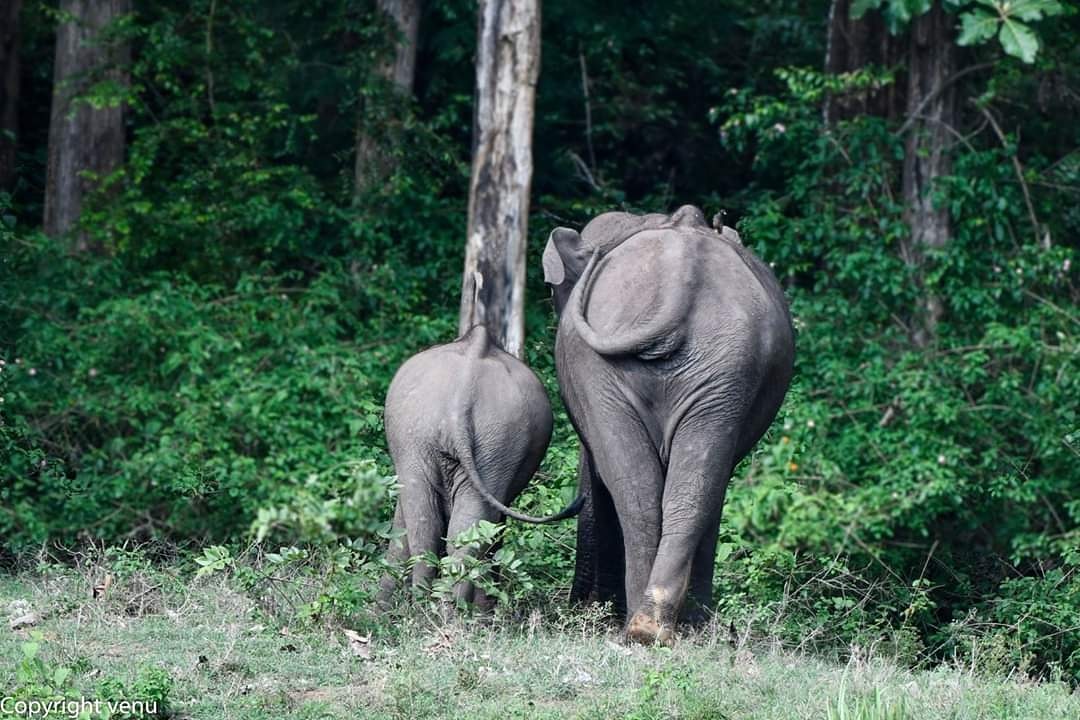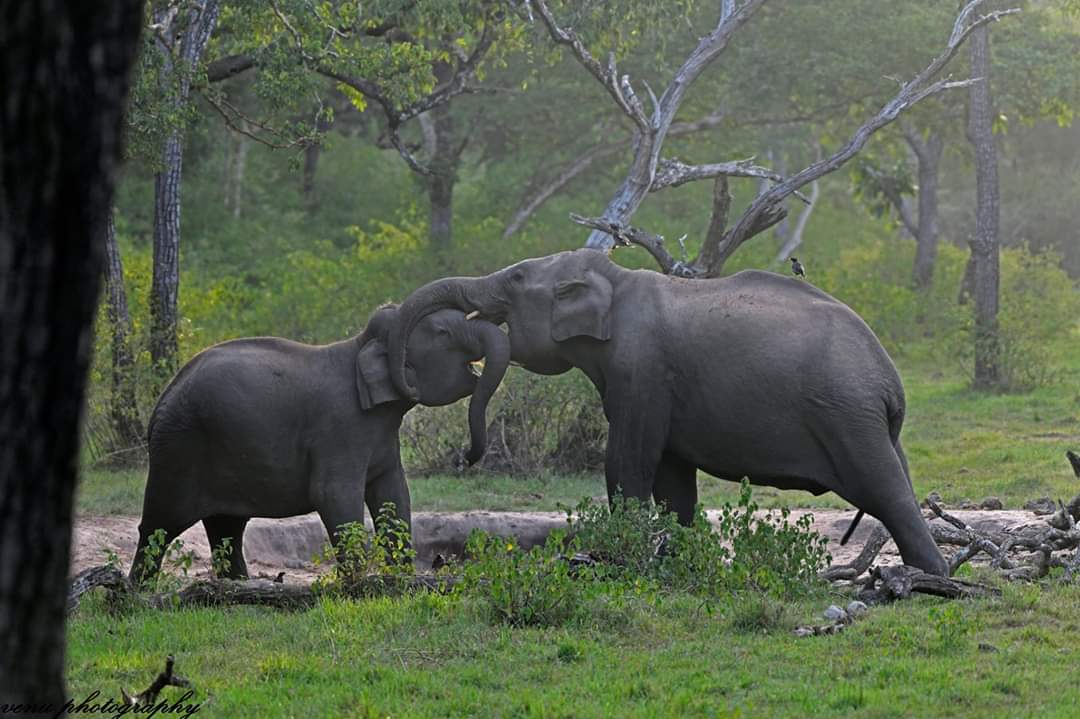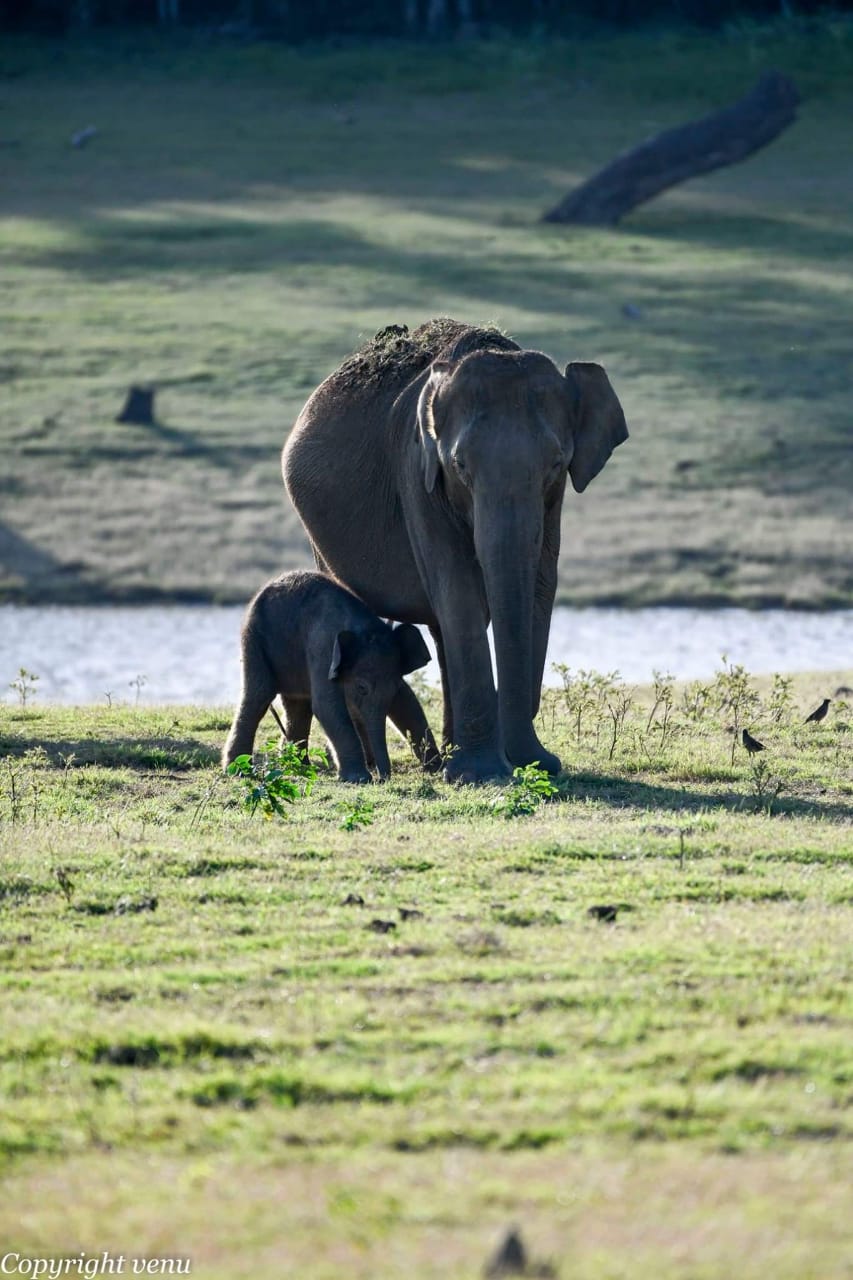Chamarajanagar (Karnataka): August 12 every year is celebrated as the World Elephant Day. The majestic creatures, which are known for their massive size, are also extremely sensitive and intelligent.
Here are 10 interesting facts about elephants:
While the life expectancy of African elephants is 60-70 years, Asian elephants live up to 45-55 years. While African elephants weigh up to 9,000 kg, Asian elephants on an average wigh 5,500 kg. (Picture Courtesy - Venugopal and Anjana Sujayakanth) Elephants possess great memory. They remember spots where they can find water and food by memory. Their searching ability using their memory is considered as effective as a GPS system. (Picture Courtesy - Venugopal and Anjana Sujayakanth) Elephants have the ability to move at speeds up to 40 km per hour. They also have the ability to hear other elephants' screaming nearly 10 km away. (Picture Courtesy - Venugopal and Anjana Sujayakanth) The elephant's unique organ is its trunk. It weighs 120-140 kg and is capable of lifting weights upto 250 kg. The trunk's movements are so precise that it can pick up even a single blade of grass. (Picture Courtesy - Venugopal and Anjana Sujayakanth) The pregnancy period for elephants is 20-24 months. The baby is nurtured by the Mother elephant until it turns five. (Picture Courtesy - Venugopal and Anjana Sujayakanth) Elephant herds are led by a matriarch, the oldest female in the group. Male elephants have a habit of separating from the herd as soon as they reach puberty. This is to ensure that they come in contact with mates from other herds. (Picture Courtesy - Venugopal and Anjana Sujayakanth) Elephants sleep only for three-four hours a day. When they're not sleeping, Elephants spend their time eating or looking for food. (Picture Courtesy - Venugopal and Anjana Sujayakanth) An average elephant consumes about about 270-300 kilograms of forage per day, and drinks 75-150 litres of water. Baby elephants drink 10-12 litres of breast milk daily till the age of two. (Picture Courtesy - Venugopal and Anjana Sujayakanth) According to researcher Joyce Poole, elephants can make 70 different sounds and also use 160 types of symbols to communicate. (Picture Courtesy - Venugopal and Anjana Sujayakanth) In India, the elephant census is undertaken every four years. The number of elephants is calculated based on elephant craters and elephant groups. (Picture Courtesy - Venugopal and Anjana Sujayakanth) Read: Tamil Nadu to send back temple elephant, but questions remain: Activists
